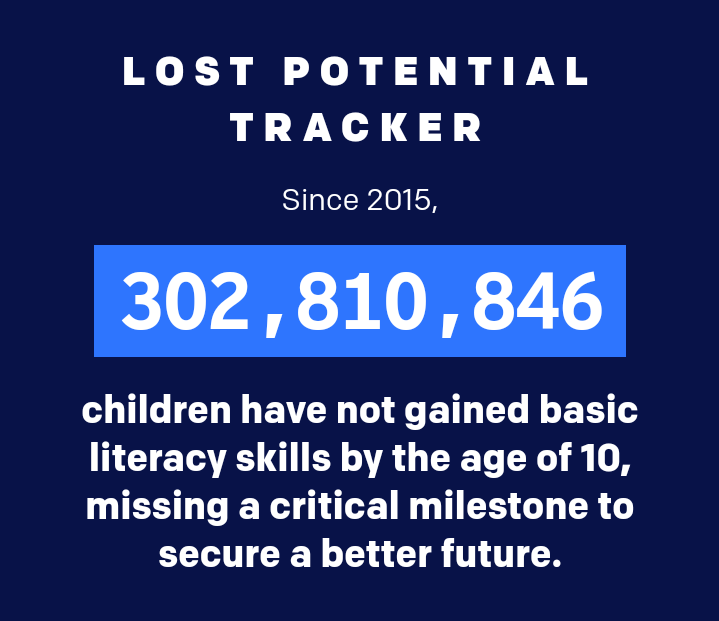ONE, the Global Partnership for Education (GPE) & Save the Children have collaborated to create the Lost Potential Tracker, an interactive tool designed to measure and creatively illustrate the scale of the global learning crisis, which affects hundreds of millions of children. The learning crisis limits children’s prospects and denies them and their communities the full promise of children’s potential.
According to this new analysis tool, more than 393 million children have failed to gain the basic literacy skills at age 10 since world leaders adopted the Sustainable Development Goals in 2015.
Based on calculations from official World Bank and UNESCO ‘learning poverty’ figures, and UN population data of all 10-year-olds, the Tracker sets out the number of children losing their future potential every year, month, week, day, hour, and second. Findings from the Tracker show that nearly 6 million children turn 10 each month without acquiring the basic literacy skills for their age. That is equivalent to the population of Johannesburg.
Speaking at the Official launch of Lost Potential Tracker, Tom Hart, Acting CEO of the ONE Campaign, said: “These figures reveal the shocking failure of world leaders to protect and prioritise children’s education. Too much is at stake for us to continue with the current business-as-usual approach. When children can transition from learning to read to reading to learn by age 10, it sets them up for a lifetime of learning and enables them to succeed throughout childhood and as adults. We must pick up the progress for change. Their futures depend on it. Our world depends on it.”
Also, Inger Ashing, CEO Save the Children International, in her key note address said: “The world is facing an unprecedented education emergency that has been exacerbated by the COVID-19 pandemic. If we are to live up to our commitments to achieving the full range of SDGs and children’s right to education, then improving literacy levels is a must.
Being able to read is a foundational skill that enables children to access their full curriculum – without being able to read, their life chances are stunted. This is particularly worse for children in some of the poorest and conflict-affected countries, for whom getting back to school and catching up on learning is more crucial than ever.
We urgently need governments and donors to prioritise tackling the learning crisis in order to secure better futures for the world’s children.”
As part of this week’s Global Action Week for Education, they are urging governments to commit at least US$5 billion for the Global Partnership for Education replenishment conference and endorse the two global targets on girls’ education set out by the UK.
